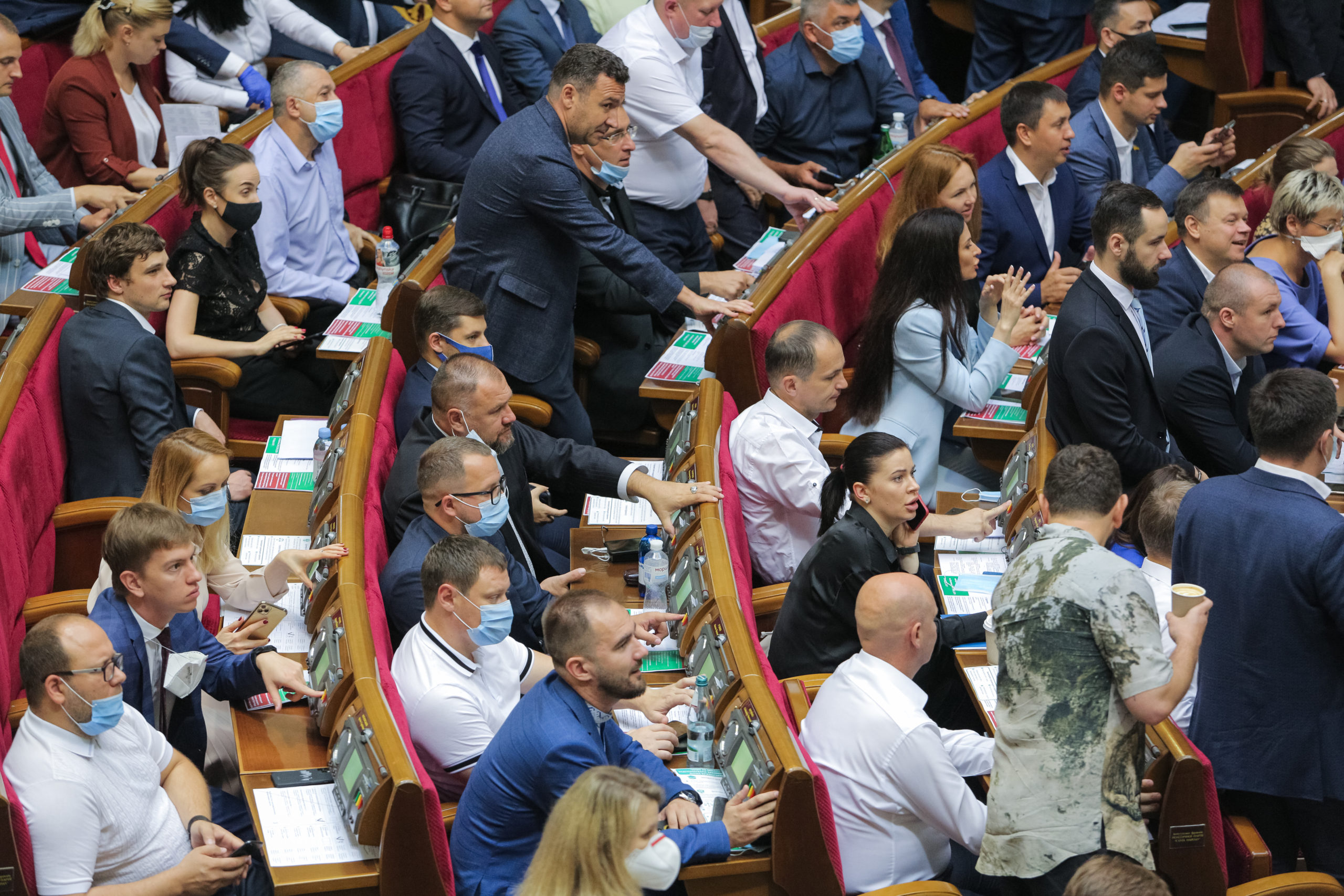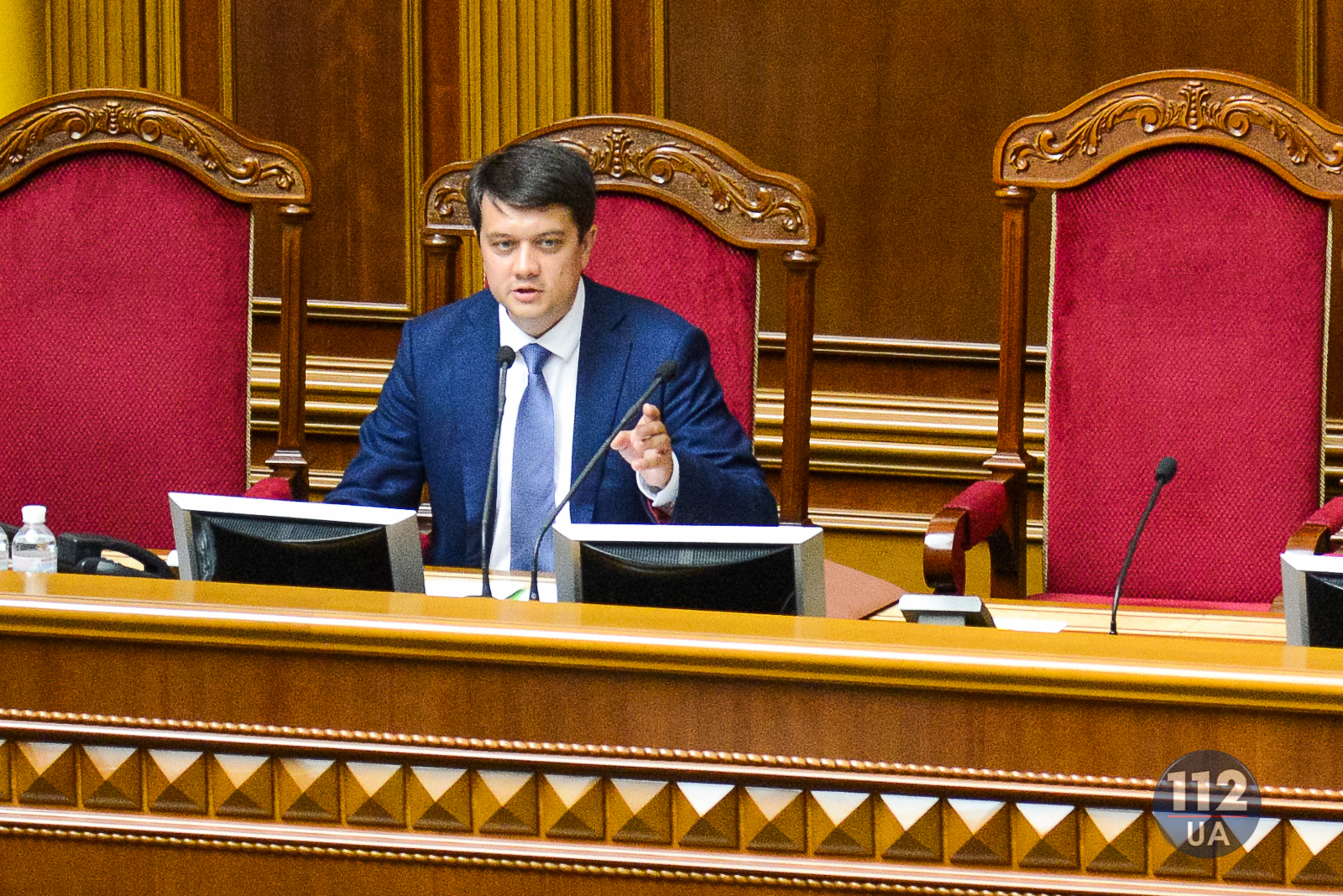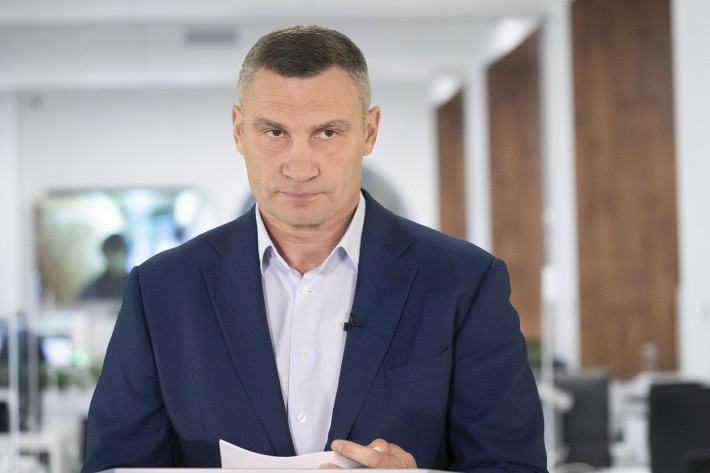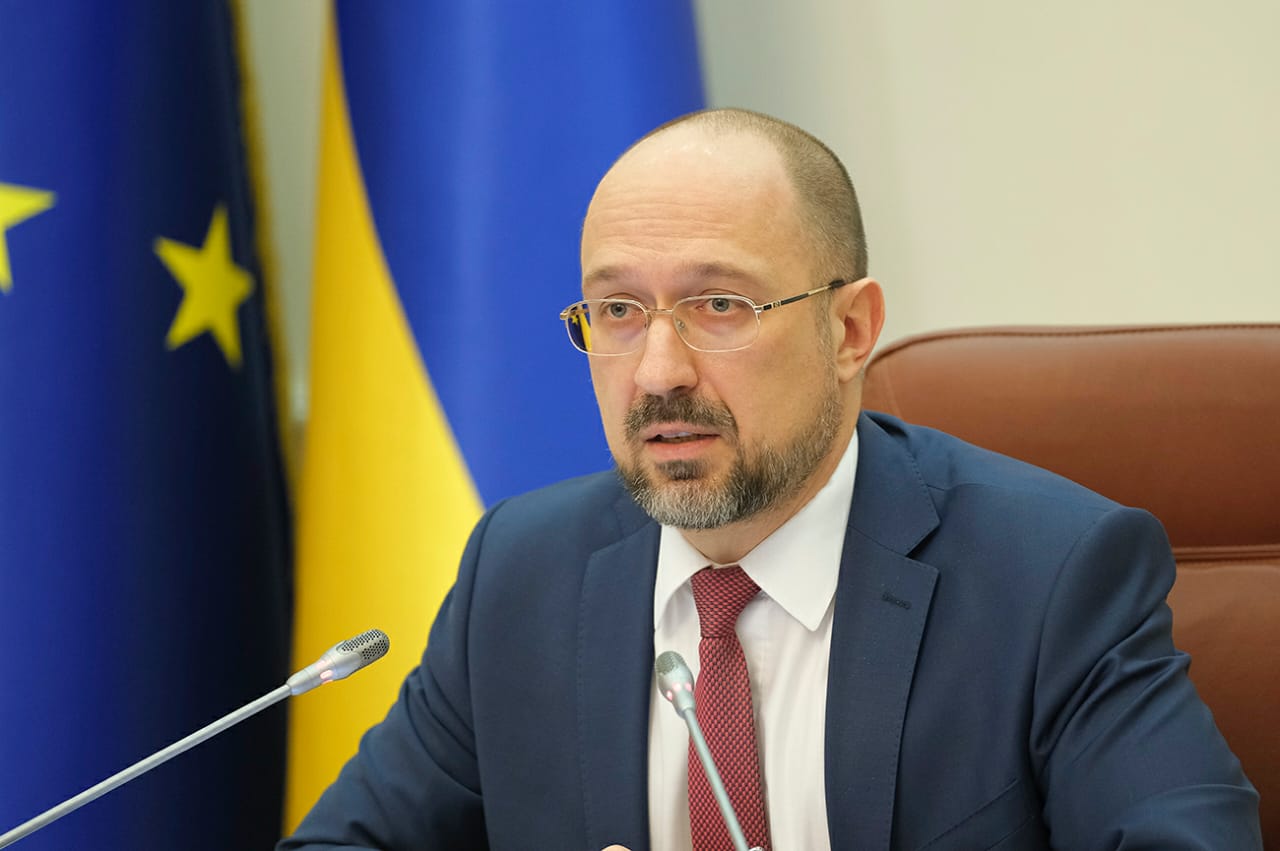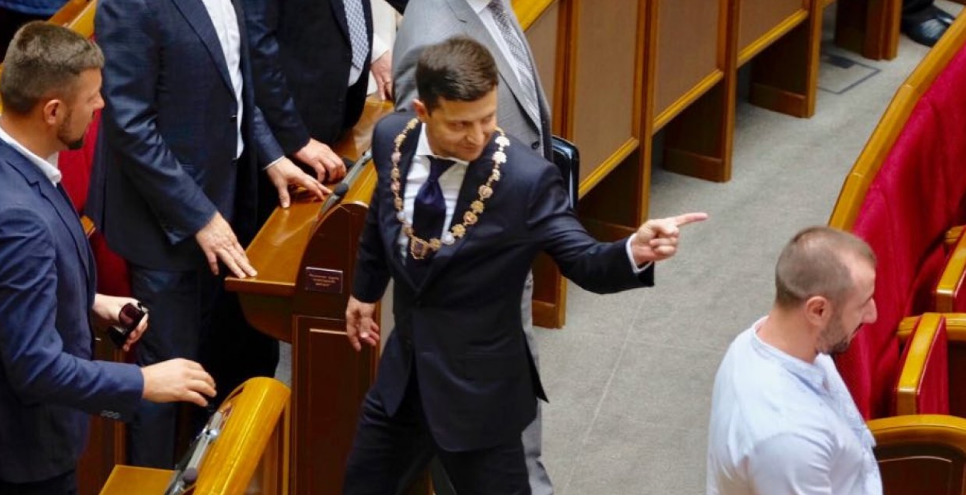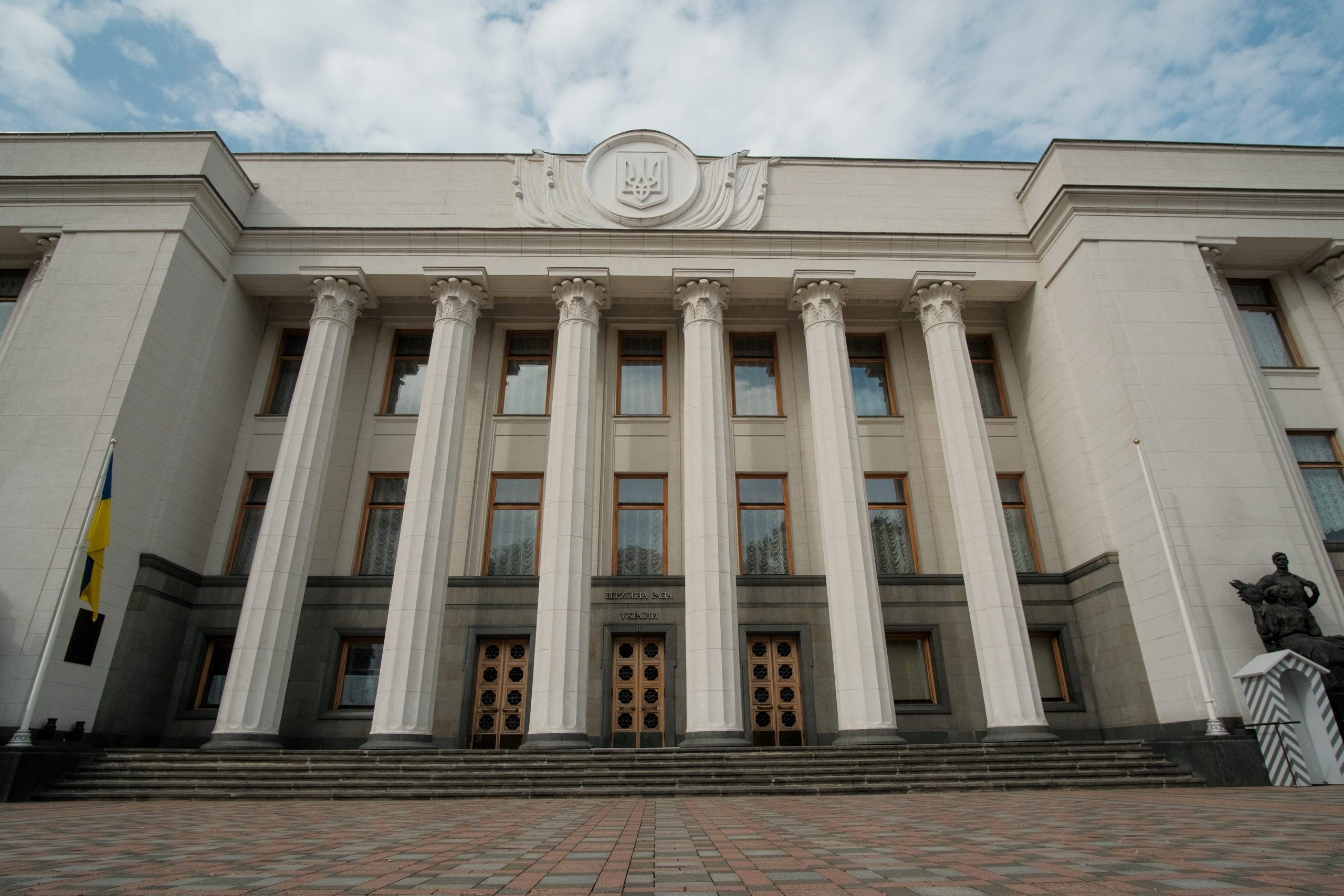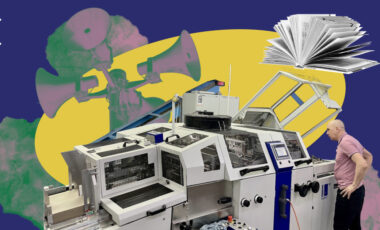Big resignations, Rada dissolution, legalize. What will the 2021 political autumn bring to Ukraine?
Rubryka analyzed what the new political season in Ukraine will be like.
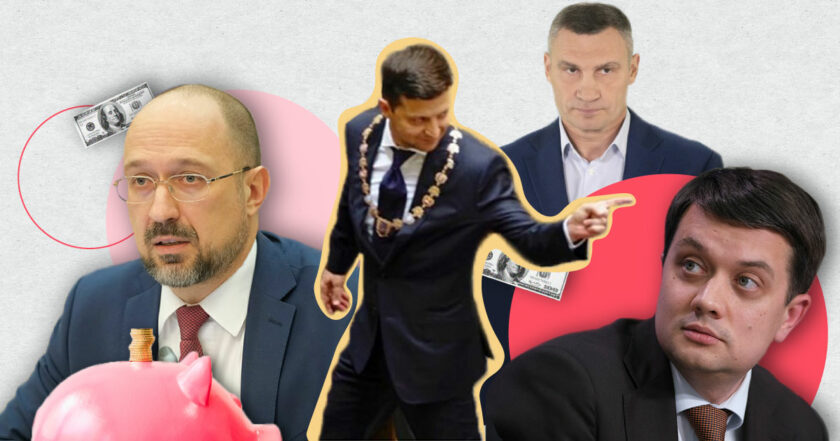
Rubryka
Autumn is when journalists don't scroll through the news in search of at least a decent newsworthy event, from which you can create great content, but swallow gallons of coffee in the middle of the night, trying to make time to describe everything that is happening.
Because the hottest political season begins.
People's deputies return to the Verkhovna Rada and begin to pass or fail scandalous, important, and resonant laws. Utility service providers raise tariffs, people prepare to protest, dismiss someone from "rich" positions, and all this nurtures and gurgles together.
For example, one of the main intrigues of the political autumn in Ukraine: will the Verkhovna Rada pass an anti-oligarchic law, or will it not succumb to the threats of President Zelenskyy, and not go against big money? And if they pass it, what form will it have? Will the law just argue with the oligarchs, or will it crush them?
And yet, will the speaker of parliament Razumkov stay in his post?
And will the President dissolve the Rada? And will he "push" the illegal decision that the 2019 elections were regular, not extraordinary?
Rubryka studied all this together with political experts Volodymyr Fesenko and Mykola Davydiuk.
Autumn will be hot
"The new political season will be hot. In Ukraine, autumn is hotter in this sense than spring or summer, so it's a tradition," Volodymyr Fesenko shared his expectations.
He calls the protests another political tradition: "They take place in our country almost every month," but insists that despite the forecasts of some political forces, a new Maidan will not happen. Although he admits that some protests will succeed "and the government will meet the dissatisfied groups halfway."
But, according to the political expert, what will happen almost 100% is "a very difficult situation around several "constitutional 'draft laws.'"
"We haven't had such a situation for a long time when several constitutional draft laws were waiting to be considered at once; we're talking about decentralization, a big coat of arms, and much more. And it will be very difficult to pass these draft laws through the Verkhovna Rada. 300 votes for the majority is an extremely difficult task," Fesenko said.
He calls the increase in tariffs for utility services an equally important topic that can have a significant impact on the entire season.
Fesenko explains that, on the one hand, some political forces will use this topic as a weapon against the central government. But on the other hand, "tariffs are the responsibility of local governments": "Let's see what it will lead to, but the tariff problem will be one of the main issues. It's a fact."
"In the autumn, the main topics in the Verkhovna Rada, besides, of course, the adoption of Ukraine's budget for next year, will be, among other things, anti-oligarchic law, legalize, and SBU reform," Mykola Davydiuk predicts.
He called the oligarchs preparing to buy the votes of people's deputies to fail the anti-oligarchic law no less important for the entire country: "They'll definitely make such attempts. By and large, we're entering a period when a lot of money will 'pour' to the Rada, which will beat even the 'twenties' in the envelopes that are already there. And how it all ends is a great intrigue because no one understands if the president is really ready to carry out his threats or just trying to intimidate someone," said the political expert.
He continues that the personnel issue will have a serious impact on the political situation. It's a question, first, of whether the Office of the President of Ukraine (OPU) will dare to remove Razumkov from the post of Verkhovna Rada speaker, or whether he'll continue to play "his role as an independent head of parliament."
In addition, Davydiuk notes, the question remains as to how profound the reformatting of the Cabinet will be, "since new ministers have to be appointed through the Rada, which will largely make it clear how monolithic the majority is."
According to the political expert, the issue of filling the state budget will be very acute. And it is, in his words, "not only about the Verkhovna Rada, but also the country as a whole."
"There are not enough finances: there are a lot of expenses, there are no sources of income, and all the deficits that were set at the end of the year will hang over the government with a catastrophic sword of Damocles in November. Therefore, the government will have to think carefully about where to get money."
Razumkov, Klychko, Shmyhal: who'll stay in office?
By the New Year, the OPU is likely to carry out several small attacks on Razumkov and Vitalii Klychko to remove one from the post of Verkhovna Rada speaker and another from the post of head of the Kyiv City State Administration, Mykola Davydiuk is convinced.
At the same time, he notes: one shouldn't expect big and simultaneous battles on both fronts; the President's Office will attack Razumkov and Klychko without exaggeration and in turn.
The reason for this, as the political expert calls it, is the president's ability to "eat small pieces of big political elephants," while mentioning the recent dismissal of Arsen Avakov from the post of Interior Minister.
Razumkov's shield, according to the political expert, could be his readiness to create his own political project in case of dismissal and become an ambitious and quite dangerous competitor to the government.
Davydiuk says that currently the relationship between Razumkov and the OPU can be described as a "bad peace," "although the President's Office sees it as a war."
"The president has already started attacking the speaker, an example of which is that in the last two weeks he has been less invited to some TV channels. And only one call is enough. However, he is not going to sit idly by, and has already left to other channels, he went to Donbas, that is, he openly demonstrates his mobility, ability to maneuver and seek solutions to the problems created for him," the political specialist explains.
In addition, he emphasizes: Razumkov's strength lies in his political "level-up": the head of the Verkhovna Rada can squeeze the most out of small resources: "You can block access to TV, but you can't close the Internet. Razumkov understands this and knows how to use it."
But Prime Minister Shmyhal, according to Davydiuk, shouldn't worry at all, because his dismissal is not beneficial to the president himself.
Zelenskyy will dare to resign Shmyhal only if the Cabinet of Ministers "drowns" his personal rating. If he removes the prime minister, it will be the last prime minister in his term. Because such a frequent change of heads of government causes a complete misunderstanding of where the president is leading the country," he explained.
But changes in the composition of the Cabinet will happen for sure, Volodymyr Fesenko is positive.
In the same way, he notes, several heads of regional state administrations will lose their positions.
"We'll see two or more resignations of 'governors,' which, however, will not indicate anything globally; their rotation is commonplace," the political specialist explains.
At the same time, he draws attention to the importance of the October 31 Kharkiv mayoral election, which "will be monitored by the entire country": "On the one hand, it's a regional event. But given the importance and significance of Kharkiv, it's becoming all-Ukrainian."
Anti-oligarchic law, SBU reform, and other important laws
"Most likely, the Verkhovna Rada will vote for the anti-oligarchic law," Volodymyr Fesenko predicts.
However, he notes there's a high probability that the adopted version of the law will be simpler than it is now.
The political expert sees the reason in the fact that although "the oligarchs don't want to come into conflict with the president," they'll still try to make several amendments to the document, beneficial to them.
At the same time, he emphasizes that the adoption of the law by the Rada will not guarantee victory over the oligarchs, as they will "fight against it in the courts."
Fesenko is also confident in the adoption of the law on SBU reform.
"This topic is very relevant in our relations with partners, including the United States. Moreover, Ukraine needs to modernize the SBU, so they will launch the reform of the service. Another matter is, again, in what form this law will be adopted, whether it will be as effective as it's required by the challenges facing the country now," said the political expert.
As for tariffs, he continues, the situation is complicated because the central government, including the president, has decided not to raise prices for utility services, but the responsibility for tariff placement lies with local councils.
"And it's a big problem, because, say, the gas market price requires an increase for Ukrainians as well. Which is clearly different from the government's position. Moreover, local governments themselves don't want to raise tariffs because it isn't lucrative for them. However, the economic situation requires it. Therefore, they'll have to look for some solutions," Fesenko said.
He predicts such a decision could be a limited increase in prices for utility services: "As long as there are enough financial resources of local authorities."
The political specialist also predicts the adoption of an anti-tobacco law but admits that it's currently difficult to say what restrictions will be introduced.
In turn, Mykola Davydiuk is convinced that there's no better time to legalize cannabis in some way than this political autumn. Therefore, the relevant law is likely to be adopted.
"Everyone sees that if they don't vote for this law now, it may be too late even in the spring because there may be a prospect of re-election, and we won't see such readiness and such an opportunity when they accept almost everything as it is now. And from what I heard from deputies both on the sidelines, and in private conversations, it follows that they intend to bring the draft law in a hall," he says.
Elections to the Verkhovna Rada
This fall, the president should answer the people's deputies when the next parliamentary elections will take place: in 2023 or 2024, Mykola Davydiuk stresses.
He explains that this situation has developed because so far no one has decided how to position the 2019 elections as regular or extraordinary.
"Technically, there were re-elections in 2019, because they took place after the dissolution of Parliament by the President. In this case, the next elections should take place, as previously planned, on October 29, 2023. But the authorities can, of course, say that regular elections took place 2.5 years ago, and then the election of the next Verkhovna Rada will be postponed to 2024," said the political expert.
If the OPU decides to hold elections in 2024, Davydiuk continues, it may create another problem that will be reflected in the entire autumn political season.
Its essence, according to the political expert, will lie in one fact: for the current composition of the Rada to be considered as elected in the next elections, "it will be necessary to obtain an appropriate constitutional decision." "But someone specific will have to sign under it. And who wants to do that, realizing that he'll receive a huge reputational blow because the adoption of this decision will definitely be illegal?"
However, the political specialist emphasizes, it may not be the case if the president decides to dissolve the Verkhovna Rada again in case of failure to vote for the anti-oligarchic law.
"If this law isn't passed, the opposition will immediately say that it happened because the president sold out to the oligarchs. And he'll find himself in a corner from which he'll have to emerge only a winner," Davydiuk explains.
He sums up that, in fact, that's why Zelenskyy began threatening his deputies that he would "exclude all those who will not vote for the anti-oligarchic law until the mono-majority ceases to exist."
"And then everything is simple: there's no majority, so we're going to the elections in a month. And the president is sure that he can do it easily."


